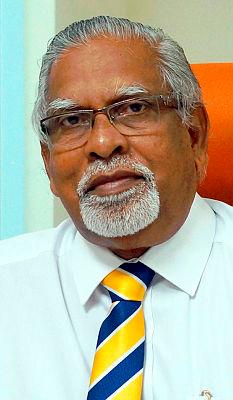PETALING JAYA: News of another round of movement control order (MCO) has been well-received by most health experts.
An MCO is in order given that infections now are so widespread, according to Malaysian Medical Association (MMA) president Datuk Dr M. Subramaniam.
Weak compliance with standard operating procedures (SOP), he said, could easily trigger a surge in infections, especially when almost all businesses are open, inter-district travel permitted and most restrictions have been eased.
He told theSun that employers should also be proactive and take preventive measures by allowing their employees to work from home as much as possible.
The surge in Covid-19 infections over the past few weeks has prompted the National Security Council to impose the MCO in six districts in Selangor from today until May 17. The six districts are Hulu Langat, Petaling, Gombak, Klang, Kuala Langat and Sepang.
The other three districts in the state, Kuala Selangor, Hulu Selangor and Sabak Bernam will remain under the conditional MCO.
He said the exercise to test people for Covid-19 should be stepped up and positive cases be isolated quickly.
“The handling of cases in affected areas should also be improved.”
On Feb 15, Health Director-General Tan Sri Dr Noor Hisham Abdullah announced that the government had set a target to reduce the national infectivity rate (Rt) to 0.5. As of last week, the Rt rate was at 1.12.
In contrast, public health specialist Dr Victor Hoe said it would be enough to revise the SOP to curb mass gatherings and enhance the use of face masks.
“Another round of MCO is unnecessary,” said Hoe, who is with Universiti Malaya.
“It is unlikely that the situation in Malaysia will deteriorate to the level seen in India,” adding that the country was seeing a surge of new infections, with more than 400,000 new cases reported daily over the past few days.
The number of cases in the sub-continent had exceeded 20 million and is still climbing.
Hoe attributed the surge in Malaysia to two factors, namely the emergence of more infective strains from the United Kingdom, South Africa and India, and reduced adherence with the SOP.
“There are reports of clusters in the general population, particularly in schools and bazaars. It does not matter where the cases come from.
“What matters is that they are already in the population, and clusters can emerge from anywhere.”
He suggested that the SOP be reinforced in restaurants and food outlets.
Public health medicine specialist
Dr Sanjay Ramphal said social distancing is difficult in urban areas.
Furthermore, he said there is inadequate access to sanitisers in public areas to ensure hand hygiene.
“Large crowds in congested areas make it fertile ground for infections.”
Sanjay, who is professor of Epidemiology at Universiti Malaya,













